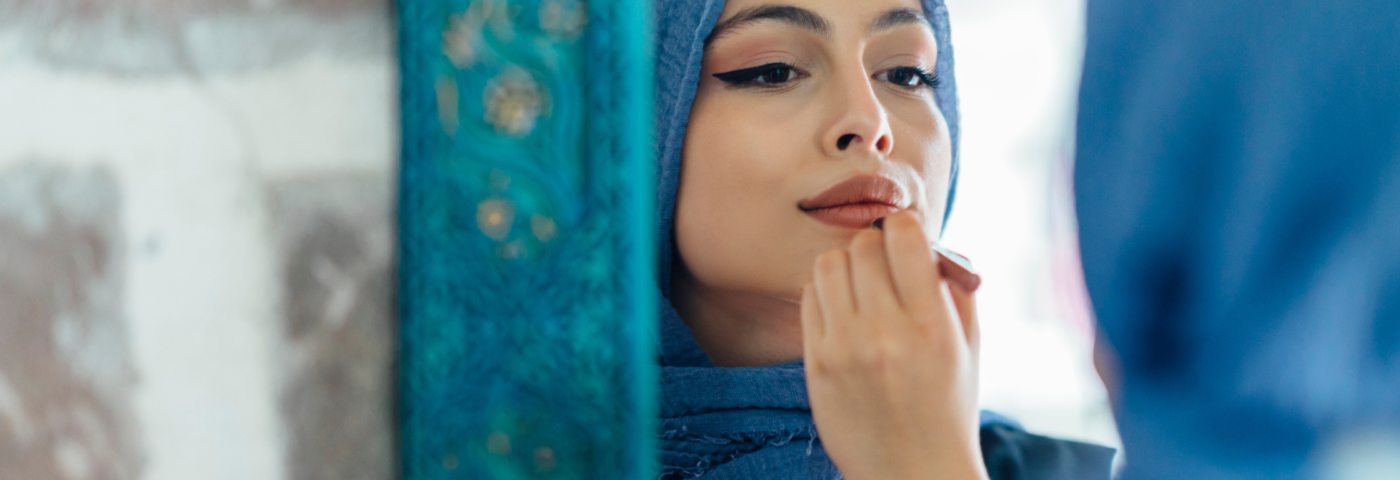Indonesia is one of the countries with the largest Muslim population in the world, surpassing Pakistan and India. According to Ministry of Home Affairs (Kemendagri) data, as of December 31 2021, Indonesia’s Muslim population was 237.53 million, 86.9% of the total majority population of Indonesia.
In recent years, the increasing religious awareness of young Muslim consumers and the growing Muslim population around the world have led to an increasing trend of using Halal products all over the world. The Indonesian middle class now have very high purchasing power, especially in the cosmetics sector, and play an important role in influencing modern Indonesian society. It’s no wonder Indonesia is one of the countries with the highest consumption of Halal products in the world.
About Halal cosmetics in Indonesia.
Halal cosmetics have existed in Indonesia since 1995, starting with the brand Wardah which has been a pioneer of Halal cosmetics in Indonesia since. Wardah raised the initial awareness to Halal cosmetics, but it did not become mainstream until 2014.
Halal product regulation was started in 2014 by the Indonesian government and cosmetic products were affected domestically and those coming from overseas. To be Halal, the ingredient of their raw materials to finished products must follow Islamic law. This meant it must not contain ingredients derived from pigs, blood, human body parts, predatory animals and reptiles, and must comply sharia in accordance with the recommendations of The Institute of the Indonesian Ulema Council (MUI).
Overview of Halal cosmetics in Indonesia
Euromonitor shows a staggering 11.99% growth in sales of beauty products since 2017, contributing to IDR 19 trillion. According to statistical data, the growth of beauty products increased by around 6.46% in 2021 despite being affected by the Covid19 virus, with online sales dominating.
According to data from goodstats.id for the use of Halal cosmetics, Indonesia ranks second after India. Indonesia continues to grow rapidly and is said to have become the centre of the cosmetics industry due to government support and a large female population.
According to Muti Arintawati, president and director of the Ulema Council of Indonesia (MUI), there were only 64 cosmetic companies with Halal certification in 2017. The number has continued to grow rapidly, with 129 companies in 2018, 162 companies in 2019, and 214 companies in 2020.
Challenges of Halal cosmetics
These government regulations must be complied with by October 17, 2026, requiring all producers, both raw material suppliers and finished product manufacturers, to be Halal certified.
These regulations pose a major challenge for all raw material suppliers, especially from overseas. By the above dates, you should be able to obtain Halal certificates for the raw materials you export to Indonesia. Halal certification can be done in each country of raw material production by Halal certification providers cooperating with BPJPH (Badan Penyelenggara Jaminan Produk Halal).
But there is also good news, as the government has lowered the registration price for Halal certification of domestic products to $3 and provide convenience in carrying out Halal registration to cosmetic business actors in Indonesia by providing a short time in Halal registration services in 15 days and forming many organizations to verify Halal documents so that the process can be faster. According to the government, the aim is to promote the domestic production of beauty products.
PS: The future of halal beauty was discussed at the recent in-cosmetics Asia event in Bangkok – you can now download the presentation here
Enjoyed this article? Get more by subscribing to our newsletter!

